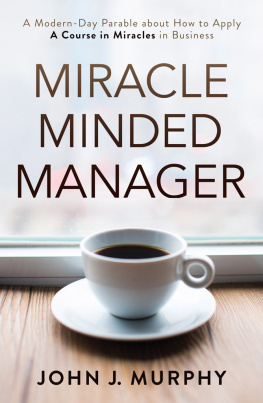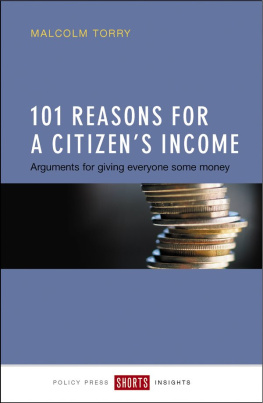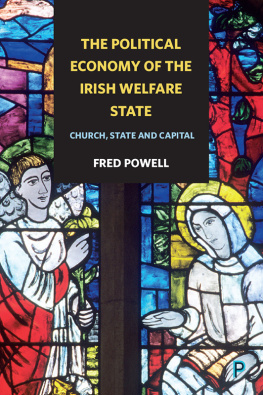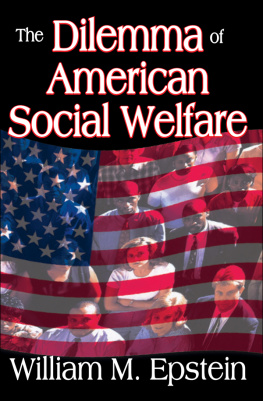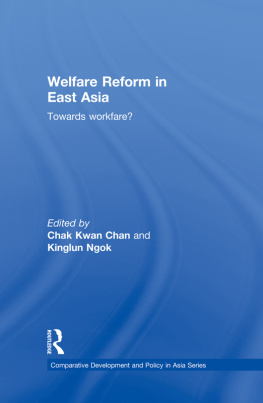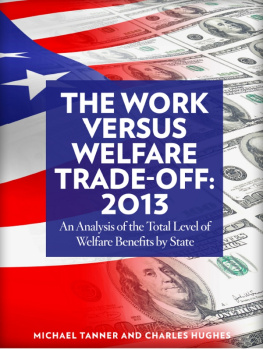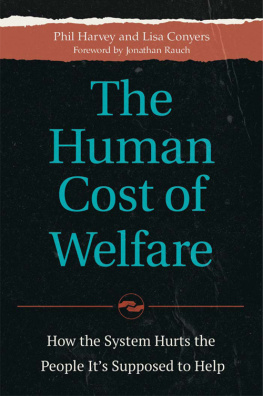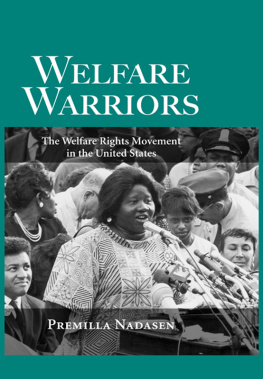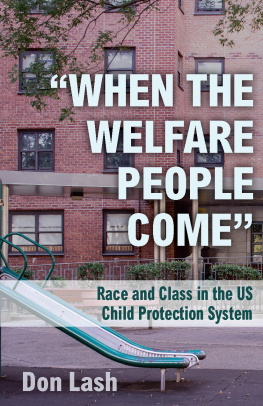John Murphy is Associate Professor in the School of Historical and Philosophical Studies at the University of Melbourne. His most recent book is A Decent Provision: Australian welfare policy, 1870 to 1949 (Ashgate, 2011)
Suellen Murray is Associate Professor in the Centre for Applied Social Research at RMIT University. Her most recent book, with John Murphy and others, is After the Orphanage: Beyond the childrens home (UNSW Press, 2009).
Jenny Chalmers is Senior Research Fellow at the National Drug and Alcohol Research Centre, University of New South Wales.
Sonia Martin is Manager, Through School to Work in the Research and Policy Centre at the Brotherhood of St Laurence and Honorary Fellow, School of Social and Political Sciences at the University of Melbourne.
Greg Marston is Associate Professor in the School of Social Work and Human Services, University of Queensland.
HALF A CITIZEN
Life on welfare in Australia
JOHN MURPHY, SUELLEN MURRAY, JENNY CHALMERS, SONIA MARTIN & GREG MARSTON
First published 2011 by Allen & Unwin
Published 2020 by Routledge
2 Park Square, Milton Park, Abingdon, Oxon OX14 4RN
605 Third Avenue, New York, NY 10017
Copyright John Murphy, Suellen Murray, Jenny Chalmers, Sonia Martin, Greg Marston 2011
Routledge is an imprint of the Taylor & Francis Group, an informa business
All rights reserved. No part of this book may be reprinted or reproduced or utilised in any form or by any electronic, mechanical, or other means, now known or hereafter invented, including photocopying and recording, or in any information storage or retrieval system, without permission in writing from the publishers.
Notice:
Product or corporate names may be trademarks or registered trademarks, and are used only for identification and explanation without intent to infringe.
Cataloguing-in-Publication details are available from the National Library of Australia
www.trove.nla.gov.au
Index by Sue Jarvis
Set in 12/14.5 pt Centaur by Midland Typesetters, Australia
ISBN-13: 9781742376059 (pbk)
This book is based on in-depth interviews with 150 Australians who receive income support payments. Between September 2007 and November 2009, we invited them to tell us their stories on two occasions, roughly a year apart. They told us what their lives are like, talked about their hopes and fears, and described how they feel they are treated by the administrative systems they deal with, as well as how they feel they are regarded by the wider society.
We wish to wholeheartedly thank all those who participated for their willingness to share the day-to-day realities of living on a low income and to talk about their beliefs and attitudes about receiving income support. Their accounts have added a richness and depth to our understanding of what it means to live like half a citizen.
The research was funded by a significant Linkage grant from the Australian Research Council (LP0669071), in collaboration with Jobs Australia, the peak body of non-profit employment and training agencies. Jobs Australia provided financial assistance, as well as valuable intellectual, moral and practical support for the project. In particular, David Thompson was unswerving in his commitment to the study, and we greatly appreciated the contributions made by George Giuliani and Simone Casey, also from Jobs Australia, who participated in the research teams quarterly workshops.
While Jobs Australia had an important role in the project, we take responsibility for the findings presented here; the views expressed in this book are those of the authors alone.
The research project was based at the University of Melbourne, led by John Murphy, with participating researchers from five other universities: namely Suellen Murray from RMIT University, Jenny Chalmers from the University of New South Wales, Greg Marston from the University of Queensland, Mark Peel from Monash University and Belinda Probert from La Trobe University. Over time, other demands took Mark and Belinda away from the project, but they contributed significantly to its early development. The project managers were Sonia Martin and then Kate Connelly, both of whom made a huge contribution to the project; so too did Teresa Grahame, a PhD student based at the University of Queensland. Research assistance was provided by Jenny Malone, Shaun Hanns and Carla Pascoe.
- ABS Australian Bureau of Statistics
- ACOSS Australian Council of Social Service
- AIHW Australian Institute of Health and Welfare
- CES Commonwealth Employment Service
- CP Carer Payment
- DEEWR Department of Education, Employment and Workplace Relations
- DSP Disability Support Pension
- FaCS (Department of ) Family and Community Services
- FaHCSIA (Department of ) Families, Housing, Community Services and Indigenous Affairs
- FTB Family Tax Benefit
- GDP Gross Domestic Product
- JNP Job Network provider
- MIAESR Melbourne Institute of Applied Economic and Social Research
- NSA Newstart Allowance
- OECD Organisation for Economic Co-operation and Development
- PPS Parenting Payment Single
- PSP Personal Support Program
- RA Rent Assistance
- SPRC Social Policy Research Centre
- UNSW University of New South Wales
- YA Youth Allowance
The receiving end of welfare
Youre treated as crap and the scum of the Earth, but also its questionable whether youre actually half a citizen.
Chloe, aged 42, DSP
It was Chloe who gave us the idea for our title, Half a Citizen. A waferthin woman, she had considerable work experience as a community worker. But her health had deteriorated, and she was now on her own after her marriage had fallen apart. She was living in a small public housing unit, and for more than five years had been receiving Disability Support Pension (DSP). She talked about her experience of being on the receiving end of the welfare system:
I tend to think that people arent eventheoretically they may be, but in practice theyre notconsidered a citizen. Theyre completely undeserving for it, and because they dont contribute any taxes and [take] everything off the system, then they dont even qualify as a citizen who is entitled to basic rights (Chloe, aged 42, DSP).
Chloes was a forceful statement of a common sentiment among the people we spoke to. Many talked about how they felt they were treated without dignity, of how they were reminded they had no real entitlement to support and of how their self-respect was undermined and eroded.
Chloe is one of the 150 people we interviewed who are on the receiving end of the transaction of welfare in Australia. That her experience was widely felt is a reflection of how our income support system works, and of the values and principles that sit behind that system and that inform public debates. Any system of welfare support encodes values and ideas about who is entitled to what, about what conditions should be attached to this support, and about what sort of society we want to live in. But many of these ideas and values are in fact con tested; some place greater emphasis on self-reliance and on requirements that welfare recipients show they are not dependent on others, while others place the emphasis on egalitarianism and on the idea that all citizens should have rights to a basic level of support. As discussed further below, Australia has a relatively weak tradition of the idea of rights to welfare support; the period during which we were conducting our interviews (2007 to 2009) has seen any notion of rights further weakened as the emphasis of government policy and public discussion has shifted to the perceived problem of welfare dependency, and to a policy agenda to push people from welfare to work.


